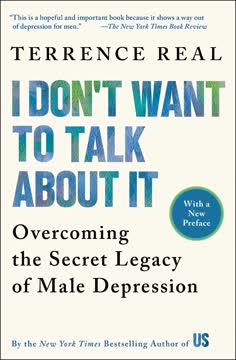重点摘要
1. 走向品格:平衡亚当I和亚当II
“简历上的美德是你在简历上列出的技能,是你带到就业市场的技能,并为外在成功做出贡献。悼词上的美德则更深刻。它们是在你的葬礼上被谈论的美德,是存在于你内心深处的美德——无论你是善良、勇敢、诚实还是忠诚;你建立了什么样的关系。”
亚当I与亚当II。 布鲁克斯引入了我们本性中两个对立面的概念:亚当I和亚当II。亚当I代表我们外在的、雄心勃勃的自我,专注于职业成功和世俗成就。亚当II则体现我们内在的道德品质,追求有目的和正直的生活。
平衡的艺术。 挑战在于协调这两个方面的个性。虽然社会常常强调亚当I的美德,但布鲁克斯认为真正的满足来自于培养亚当II。这包括:
- 发展强大的道德品格
- 培养深刻、有意义的关系
- 服务于比自己更伟大的目标
- 努力实现内在成长和自我提升
2. 文化价值观的转变:从自我贬低到自我表达
“我们生活在一个鼓励我们思考如何拥有伟大职业的文化中,但却让我们许多人在如何培养内心生活方面无言以对。”
文化转型。 布鲁克斯追溯了美国文化从20世纪40年代到现在的重大转变。这一变化使社会从重视:
- 自我贬低到自我表达
- 谦逊到自我推销
- 社区意识到个人主义
转变的后果。 作者认为这种文化转型导致了:
- 对个人品牌和自我推销的关注增加
- 对道德品格发展的重视减少
- 一个难以解决更深层次意义和目的问题的社会
- “大我”文化的兴起,以膨胀的自尊和自恋为特征
3. 谦逊和自我意识在领导力中的力量
“我不能奢侈地感情用事。我的必须是冷静的逻辑。感情是给别人的。”
领导中的谦逊。 布鲁克斯通过乔治·马歇尔等例子强调了谦逊在有效领导中的重要性。关键方面包括:
- 认识到自己的局限性和缺陷
- 将组织或任务的需要置于个人荣耀之上
- 在决策中保持情感控制和客观性
自我意识作为一种力量。 培养自我意识的领导者往往:
- 做出更平衡和深思熟虑的决策
- 与同事建立更强大、更信任的关系
- 更有效地应对复杂的道德和伦理困境
- 通过自我反思不断提高他们的领导技能
4. 拥抱斗争和逆境以实现个人成长
“痛苦已成为我们不愿背弃的任务。”
斗争的变革力量。 布鲁克斯认为,面对和克服逆境对品格发展至关重要。好处包括:
- 增强的韧性和心理坚韧
- 对他人斗争的更大同情和理解
- 问题解决能力和创造力的发展
- 对生活的快乐和成功有更深的欣赏
重新定义困难。 作者鼓励读者将困难视为成长的机会,而不仅仅是障碍。这种视角的转变可以导致:
- 对生活挑战的更积极看法
- 增加在艰难时期坚持下去的动力
- 从克服逆境中获得的目的感和意义
- 个人转变和隐藏力量的发现
5. 道德现实主义在品格发展中的重要性
“我们生活在一个非常重视个人幸福的社会中,幸福被定义为不在实现愿望时受挫。但古老的道德传统并未消亡。”
道德现实主义的定义。 布鲁克斯倡导回归道德现实主义,这包括:
- 承认人性复杂性,包括我们的缺陷和美德
- 认识到我们更高和更低冲动之间的持续斗争
- 接受一种避免简单判断的道德观
道德现实主义的好处。 采用这种观点可以导致:
- 对自身动机的更大自我意识和诚实
- 对他人道德斗争的更多同情和理解
- 更强的伦理决策基础
- 更现实和可持续的个人成长方法
6. 爱在个人进化中的变革力量
“我无法固定我的主题。他总是躁动不安,因自然的陶醉而晃动……我不描绘存在。我描绘流逝……我必须使我的故事适应时刻,因为很快我可能会改变。”
爱的重塑力量。 布鲁克斯探讨了深刻、承诺的爱如何改变个人:
- 鼓励个人成长和自我提升
- 培养同理心和情商
- 提供超越自我的目的感和意义
- 挑战个人面对自己的缺陷和弱点
变革性爱的类型:
- 激励相互成长的浪漫伴侣关系
- 培养潜力的导师-学徒关系
- 促进归属感和共同目标的社区纽带
- 促进真实和自我接纳的自爱
7. 自我反省和诚实在自我提升中的价值
“每个人自然地说服自己可以坚持自己的决心;只有经过长时间和频繁的实验,他才会意识到自己的无能。”
自我反省的重要性。 布鲁克斯强调诚实自我反省在个人成长中的关键作用:
- 识别需要改进和改变的领域
- 认识行为和思维模式
- 发展更准确的自我形象
- 培养谦逊和开放接受反馈
有效自我反省的策略:
- 定期写日记或反思时间
- 从值得信赖的朋友和导师那里寻求反馈
- 参与冥想或正念练习
- 为定期的生活回顾和目标设定留出时间
8. 培养职业感和目标感
“职业不是事业。选择事业的人寻找工作机会和晋升空间。选择事业的人寻找能提供经济和心理利益的东西。如果你的工作或事业不适合你,你就选择另一个。”
职业的定义。 布鲁克斯区分了事业和职业:
- 事业是为个人进步和经济利益而选择的
- 职业是一种与个人最深层价值观和目标感相一致的召唤
寻找和生活自己的职业:
- 识别核心价值观和激情
- 寻找服务他人和为社会做贡献的机会
- 在追求更高目标中接受挑战和牺牲
- 不断完善和深化对所选道路的承诺
9. 社区在塑造个人品格中的作用
“在这一生中,对我们都注定要感到的孤独,唯一的答案是社区。”
社区对品格的影响。 布鲁克斯强调了社区在个人发展中的关键作用:
- 为道德成长提供支持和责任
- 提供挑战和扩展我们世界观的多样化视角和经验
- 创造服务和无私的机会
- 培养归属感和共同目标
建立强大的社区:
- 在差异中培养同理心和理解
- 参与共同的仪式和传统
- 鼓励开放对话和建设性冲突解决
- 支持弱势成员并庆祝集体成就
10. 在现代世界中平衡雄心与道德诚信
“我们采取并必须继续采取道德上危险的行动来维护我们的文明。我们必须行使我们的权力。但我们不应相信一个国家在行使权力时能够完全无私,也不应对腐蚀权力合法化的正义的特定程度的兴趣和激情感到自满。”
驾驭道德复杂性。 布鲁克斯承认在追求成功的同时保持道德诚信的挑战:
- 认识到在权力和影响力位置上腐败的潜力
- 在个人雄心与伦理考量之间取得平衡
- 做出可能产生意外后果的艰难决策
- 在竞争激烈的世界中努力保持诚实和透明
道德领导的策略:
- 通过反思和学习发展强大的道德指南针
- 寻求多样化的观点并参与开放对话
- 培养谦逊和承认错误的意愿
- 优先考虑长期的伦理考量而非短期利益
最后更新日期:
FAQ
What's The Road to Character about?
- Character Development Focus: The book contrasts résumé virtues (external success skills) with eulogy virtues (qualities defining one's character), emphasizing the importance of nurturing the inner self.
- Moral Ecology: Brooks discusses a historical moral framework that encourages humility and self-examination, using biographical essays to illustrate character cultivation through adversity.
- Cultural Critique: The author critiques modern society's focus on self-promotion, advocating for a return to deeper values prioritizing moral integrity and community.
Why should I read The Road to Character?
- Personal Growth: The book offers insights and practical advice for developing a stronger moral character, emphasizing inner virtues.
- Historical Context: It provides a rich historical perspective on character development, helping readers understand the evolution of moral values.
- Cultural Reflection: Brooks encourages introspection on societal pressures shaping values, leading to a more fulfilling life.
What are the key takeaways of The Road to Character?
- Two Adams Concept: Brooks introduces Adam I (external self) and Adam II (moral self), advocating for prioritizing Adam II for true fulfillment.
- Importance of Struggle: Character is forged through struggle and self-confrontation, with moral battles essential for personal growth.
- Community and Service: True happiness and character development come from selflessness and connection with others.
What are the best quotes from The Road to Character and what do they mean?
- “You have to give to receive.”: This quote highlights the book's central idea that selflessness and humility are essential for building character.
- “In order to find yourself, you have to lose yourself.”: It suggests that personal growth requires letting go of ego and embracing humility.
- “The heart cannot be taught in a classroom intellectually.”: Character development is a lifelong journey, achieved through personal experiences and relationships.
What is the difference between résumé virtues and eulogy virtues in The Road to Character?
- Résumé Virtues: These are skills and achievements for external success, often prioritized in modern society.
- Eulogy Virtues: These are deeper qualities defining character, such as kindness and integrity, which Brooks argues are more important.
- Cultural Implications: Brooks critiques the societal emphasis on résumé virtues, advocating for a shift towards valuing eulogy virtues.
How does David Brooks suggest we cultivate character in The Road to Character?
- Self-Examination: Regular self-reflection and honest assessment of weaknesses are crucial for improvement.
- Embrace Struggle: Engaging in moral struggles is essential for character development, viewing challenges as growth opportunities.
- Seek Exemplars: Learning from moral exemplars can inspire and guide personal development.
What role does humility play in The Road to Character?
- Foundation of Character: Humility is crucial for building character, allowing individuals to confront weaknesses and foster growth.
- Cultural Critique: Modern society's lack of emphasis on humility leads to arrogance; cultivating humility promotes deeper connections.
- Moral Framework: Humility enables serving others and prioritizing the common good over personal ambition.
How does The Road to Character address the concept of vocation?
- Vocation vs. Career: Brooks distinguishes between a career driven by ambition and a vocation as a calling to serve others.
- Responding to Life's Call: The book encourages considering what life asks of us, fostering a sense of purpose and community connection.
- Examples of Vocation: Biographical essays illustrate how figures found their vocations through service and commitment to greater causes.
How does The Road to Character critique modern society?
- Focus on Self-Promotion: Brooks critiques the obsession with self-esteem and individual success, detracting from deeper moral values.
- Shift from Moral Realism: The decline of moral realism in favor of a self-centered worldview is highlighted, urging a return to humility.
- Consequences of "Big Me" Culture: Emphasis on personal branding leads to isolation and superficial relationships, lacking genuine fulfillment.
How does The Road to Character relate to the concept of grace?
- Grace as Unmerited Love: Brooks discusses grace as a gift from God, emphasizing surrendering to a higher power for fulfillment.
- Transformation through Grace: Accepting grace leads to personal transformation, realigning desires and priorities.
- Connection to Community: Grace is experienced through relationships, reinforcing support in the journey toward character development.
Who are the main figures discussed in The Road to Character?
- Frances Perkins: Highlighted for her role in labor reform and commitment to social justice, exemplifying character in public service.
- George Marshall: Known for his leadership during WWII, exemplifying humility and selflessness in service to his country.
- Augustine: His journey from ambition to faith and humility serves as a profound example of personal transformation.
What methods does Brooks suggest for developing character in The Road to Character?
- Self-Examination and Reflection: Engaging in regular self-reflection to understand motivations and areas for growth.
- Embracing Struggle: Facing personal challenges head-on is essential for character development and resilience.
- Cultivating Humility: Recognizing one's flaws and seeking support from others fosters a mindset conducive to growth.
评论
《通往品格之路》通过典范人物探讨道德发展,对比“简历美德”和“悼词美德”。读者欣赏布鲁克斯对品格塑造的见解以及他对历史人物的分析。有些人觉得传记部分乏味,宗教色彩令人不悦。批评者质疑布鲁克斯的资格,认为这本书过于说教。尽管许多人称赞这本书发人深省,但也有人觉得它令人失望且结构不佳。总体而言,反应不一,有人认为它具有启发性,而另一些人则认为它肤浅或与现代现实脱节。
Similar Books


















